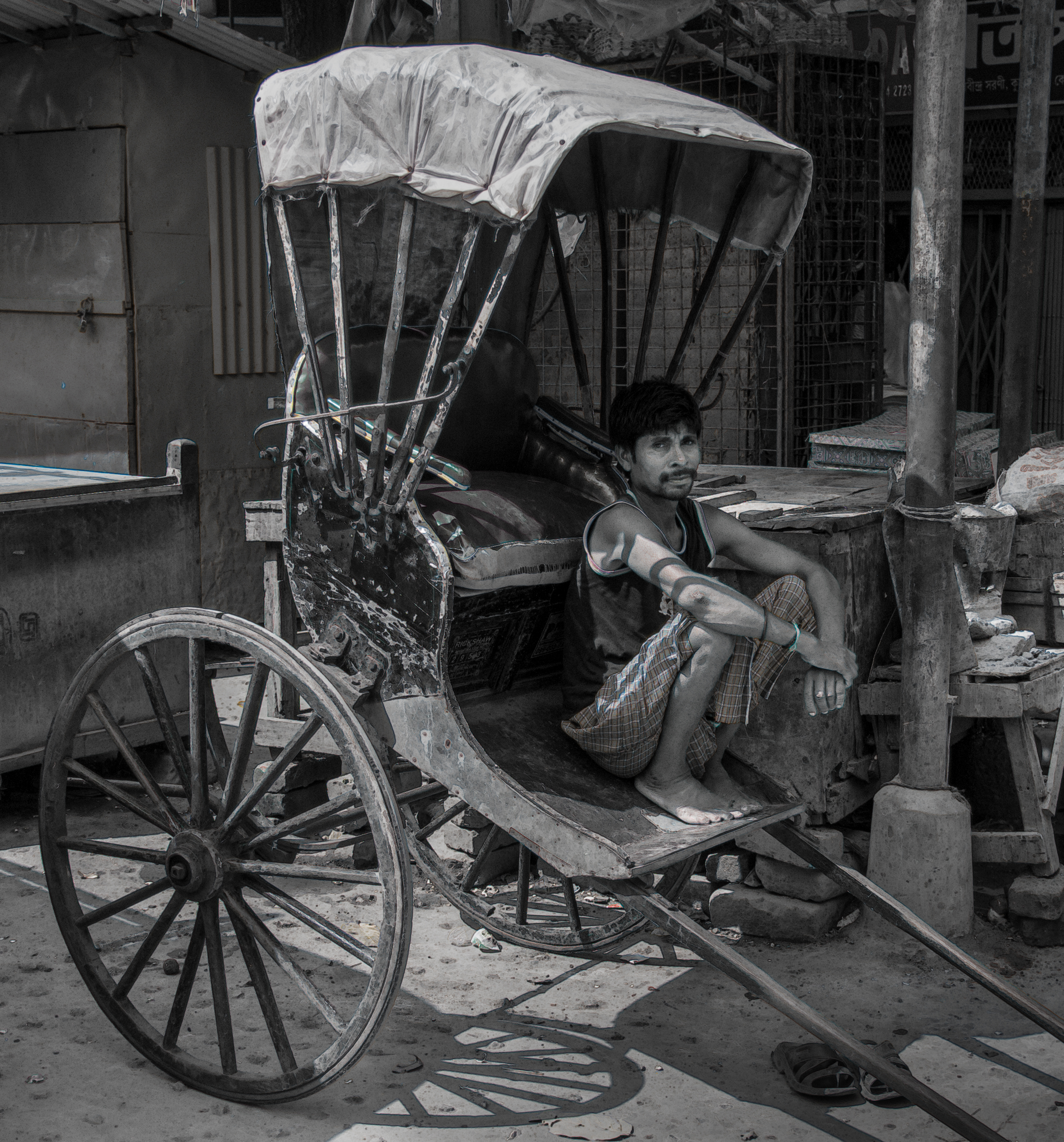
For most of us, it is difficult to watch a person being used as a beast of burden pulling another person and their belongings. It seems inhumane, all the more because of India’s caste system. Nonetheless, rickshaw wallahs (pullers) are a ubiquitous part of Kolkata, India. In fact, rickshaws have plied the streets of this city for over a century. They first appeared in the late 1800s, brought by Chinese traders to transport their goods.
A rickshaw wallah’s life is hard. His day typically starts at 5 am delivering goods to merchants around the city. Then, he may take children to school, trusted and relied upon by the family. After a short rest, he continues delivering clients and their goods around the city until way past dark. All of this for about $3 per day. Out of that meager income, comes rental for the rickshaw, bribes to the police, a meal and a loft to sleep in, along with other pullers. In spite of the hard work and low wages, the pullers are proud of what they do and of the relationships they have with their customers.
When the monsoons arrive in Calcutta, as they do each year, the streets flood. Taxis, lories, streetcars all become waterlogged and useless. The rickshaw wallahs are all that keep the good and people moving through the flooded narrow lanes and alleys of Old Calcutta.
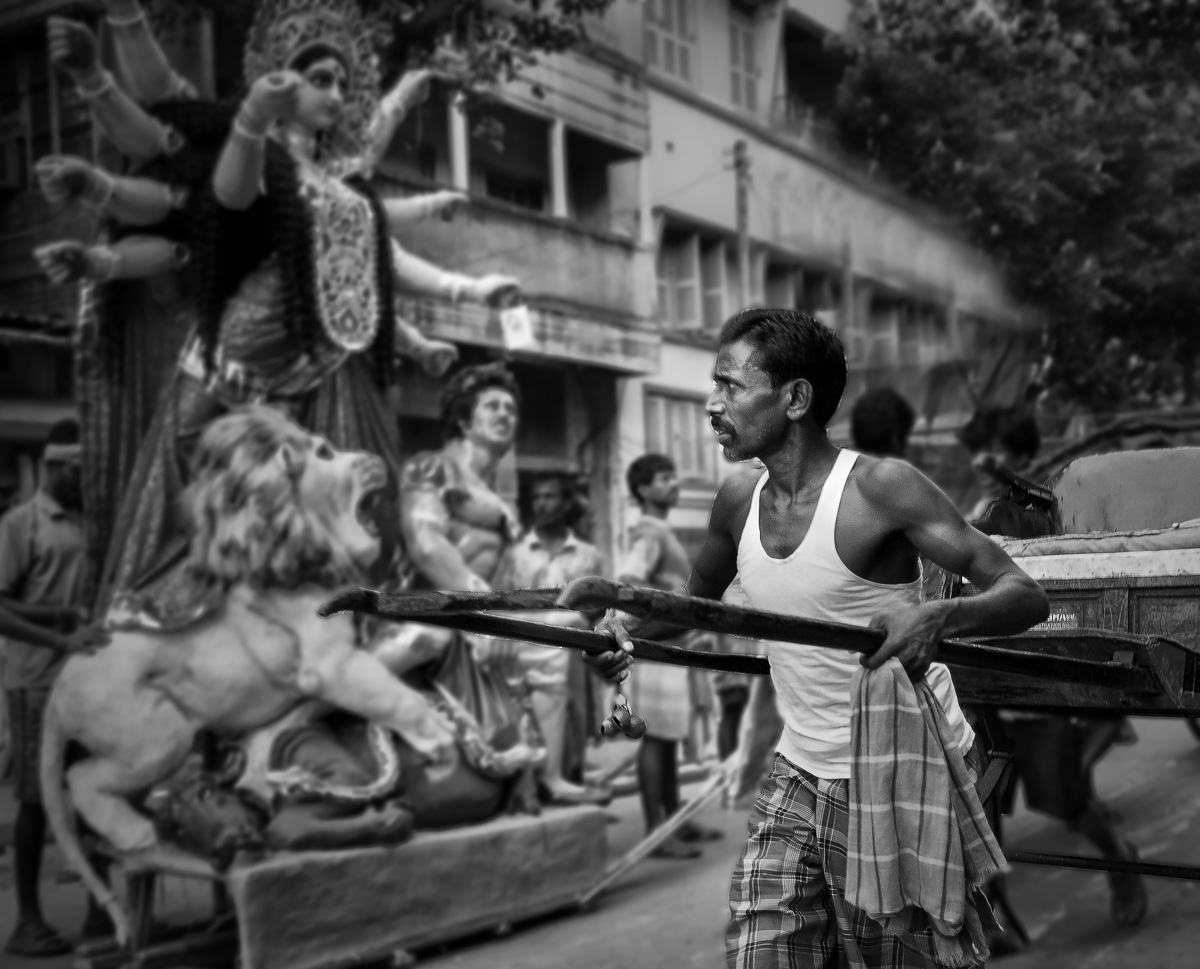

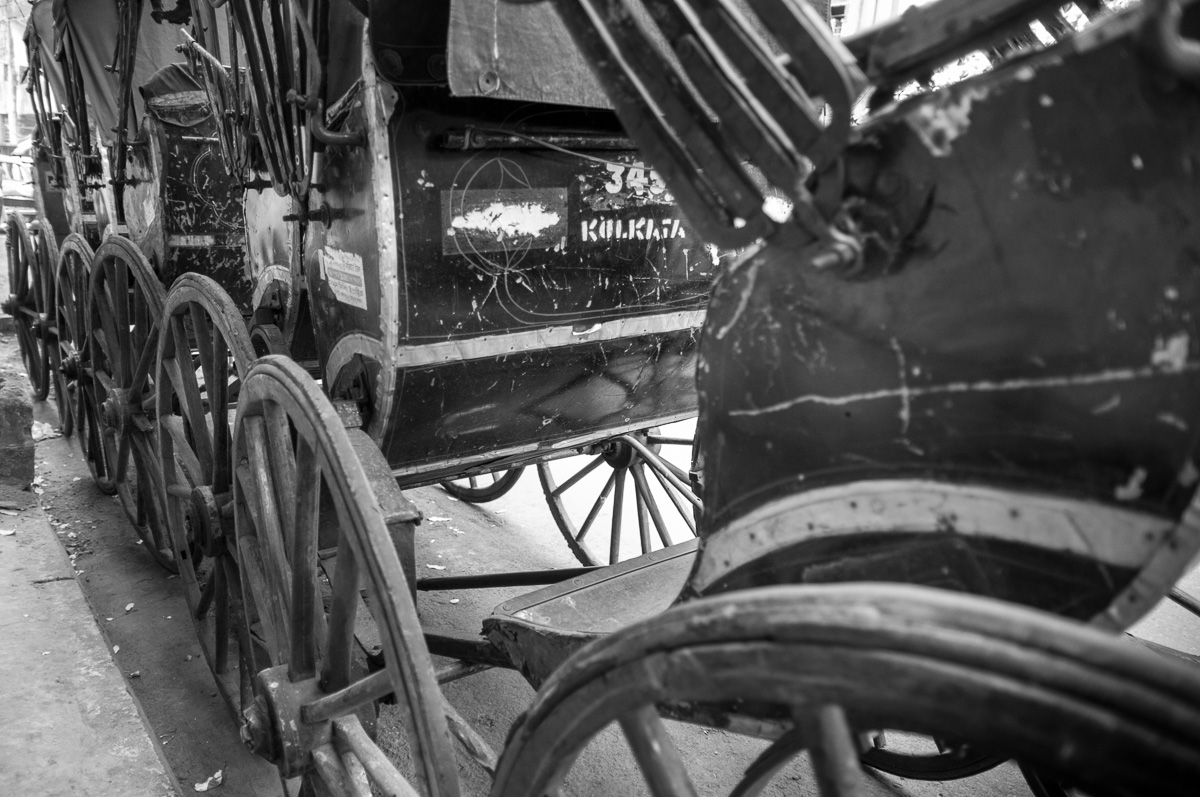

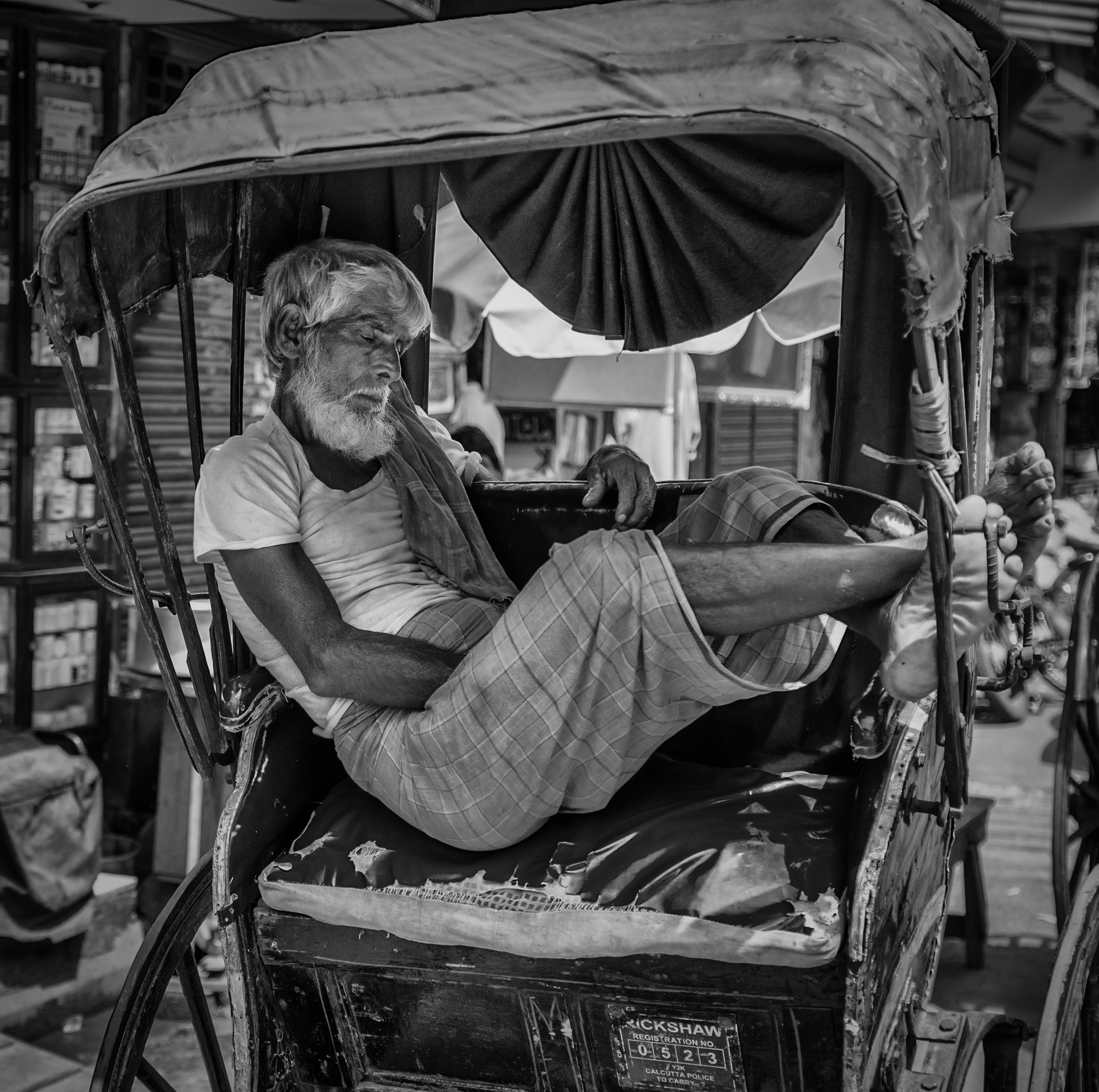




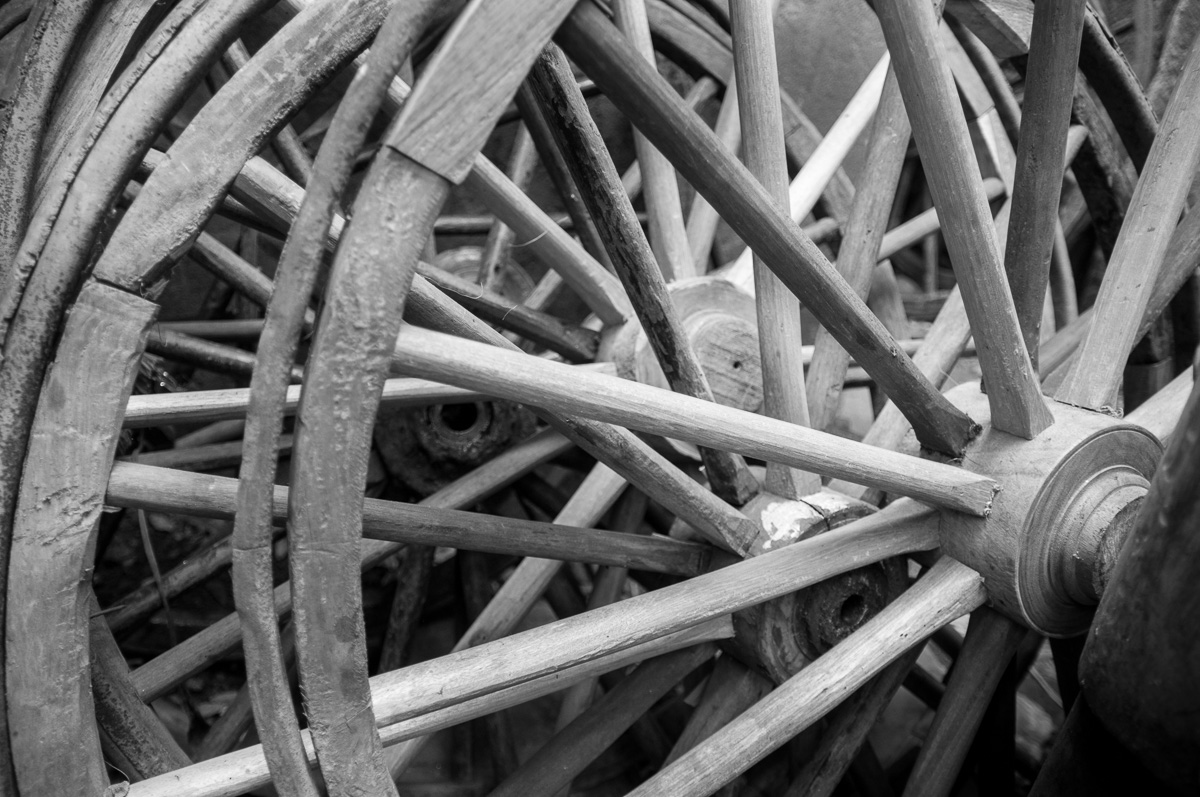



Alison and Don
27 Jun 2017Wonderful photographs Ron. I especially like the third one, and the one where the wallah is looking back at his passenger. I can’t even imagine a life like that. It reminded me of our pedicab driver and his broken down old pedicab in Trinidad, Cuba. He was fifty and worked so hard hauling people up and down the hills. His “brakes” were down to metal on metal and screeched like a strangled cat. I wish I’d been able to buy him a new bike. We’re so very lucky.
Alison
fotograffer
31 Jul 2017Thanks so much Alison. To a large extent, the caste system in India determines one’s occupation. While in Cuba many educated teachers, health care professionals, etc. can make more monet with a pedicab than the careers they trained for. Socialism runs amuck.
Alison and Don
31 Jul 2017I was in Cuba last February and am just now putting together the second blog post about it. Cuba was fascinating, frustrating, confounding. Both countries are poor, but there’s a whole different energy in India that’s for sure.
Elmer Nev Valenzuela
27 Jun 2017Cinematic!
fotograffer
31 Jul 2017Thanks so much, Elmer.
afoodfulday
28 Jun 2017Life is not exactly easy in a third world developing country.
Also the distribution of literacy is not equal in india.
Although Kolkata is one of the most educated cities, me being a kolkatan myself, making a living here is hard.
Also amazing photographs!
fotograffer
31 Jul 2017Thank you so much for your thoughtful comment. It strikes me that making a living for all but a very few is very difficult in India and much of the world.
intrepid8
16 Jul 2017Damn. I concur. I hate seeing people pull others like they’re cattle or something. Still, you remind us it’s not entirely one-sided with the wallahs taking pride in it.
Thanks.
fotograffer
31 Jul 2017The caste system is difficult for most Westerners to comprehend. The system has been outlawed officially but still, flourishes in much of India. Thanks.